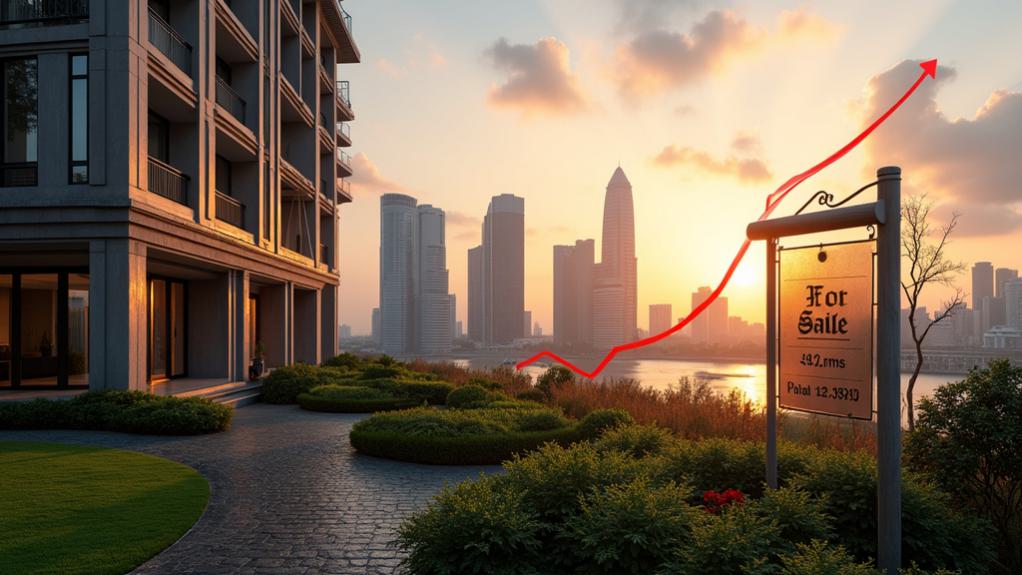As global real estate markets recalibrate following years of robust foreign investment, affluent Chinese buyers are prominently retreating from property acquisitions in the United States and Singapore, signaling a significant shift in international capital flows. The once-dominant presence of Chinese investors in these premium markets has diminished substantially since 2017, when investments in US real estate alone peaked at over $31 billion before commencing a multi-year decline that continues through 2024.
This withdrawal stems from multiple concurrent factors, most significantly Beijing’s intensified capital controls designed to retain wealth within national borders. The Chinese government’s regulatory framework has systematically restricted outbound investment channels, particularly for real estate acquisitions abroad.
Simultaneously, deteriorating US-China relations have introduced unprecedented uncertainty for potential investors, while increased US regulatory scrutiny specifically targeting foreign buyers has further dampened enthusiasm for American property assets. Singapore’s implementation of a 60% ABSD rate for foreign buyers in April 2023 has dramatically reduced Chinese participation in its property market, driving foreign purchases down from 7% to just 3-4%.
The geopolitical frost between Beijing and Washington creates a chilling effect on Chinese appetite for American real estate investments.
Transaction volumes in both markets reflect this recalibration, with significant decreases in both the number and total value of purchases by mainland Chinese nationals. Previously lucrative markets such as California, Florida, and New York report Chinese buyer activity well below historical averages, while Singapore’s luxury segment similarly experiences reduced mainland participation, particularly in high-end developments where Chinese buyers once competed aggressively. The US has fallen to 7th place as a luxury property destination in 2024, demonstrating this dramatic shift in buyer preferences.
This trend is especially evident in cities like Houston, where properties now selling for average prices of $635/sqm represent significant value compared to major Chinese metropolitan areas. Investment behavior has undergone a fundamental transformation, with wealthy Chinese individuals displaying markedly increased caution and selectivity. The previous appetite for trophy properties in prestigious international locations has been replaced by preference for liquidity, flexibility, and geographic proximity—with many redirecting capital to domestic investments or nearby Asian markets perceived as safer alternatives.
Market participants have adapted to this new reality, with US developers and agents pivoting toward other international buyer segments. The retreat represents a significant structural shift rather than a cyclical downturn, with capital flow patterns suggesting that Chinese domestic policy priorities have effectively redirected substantial investment that previously flowed to international real estate markets back toward opportunities within China itself.





